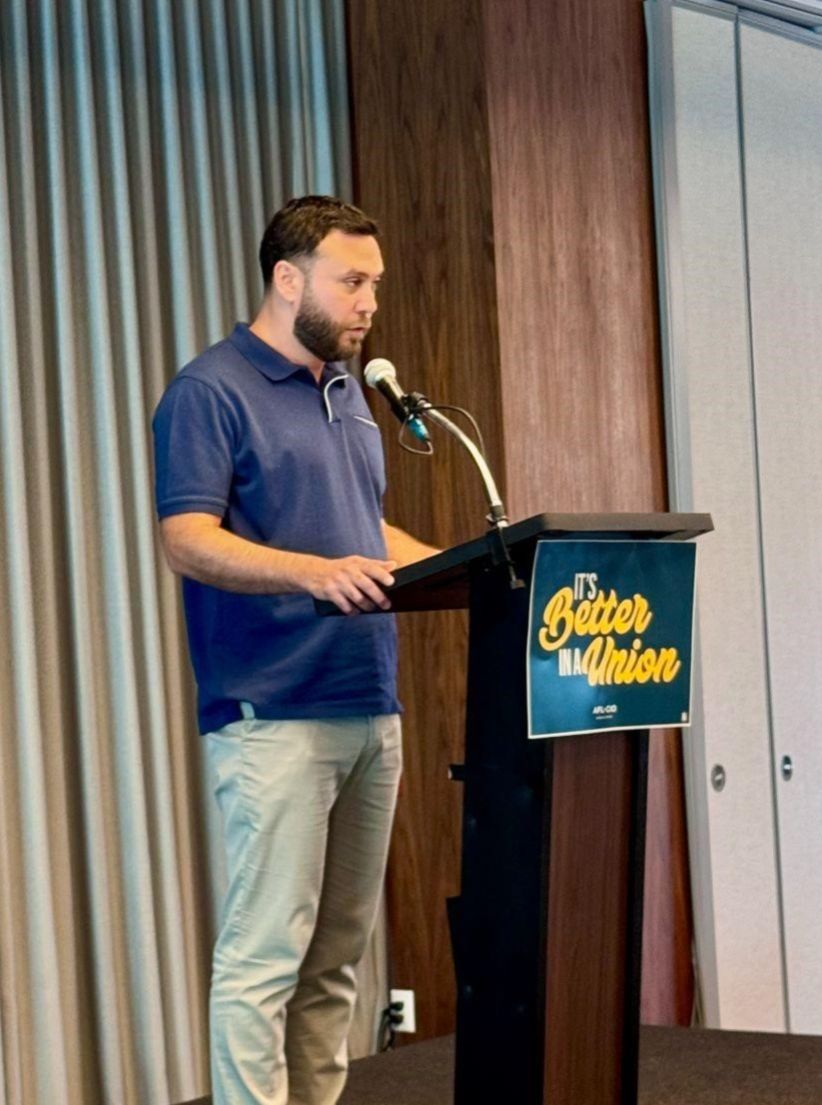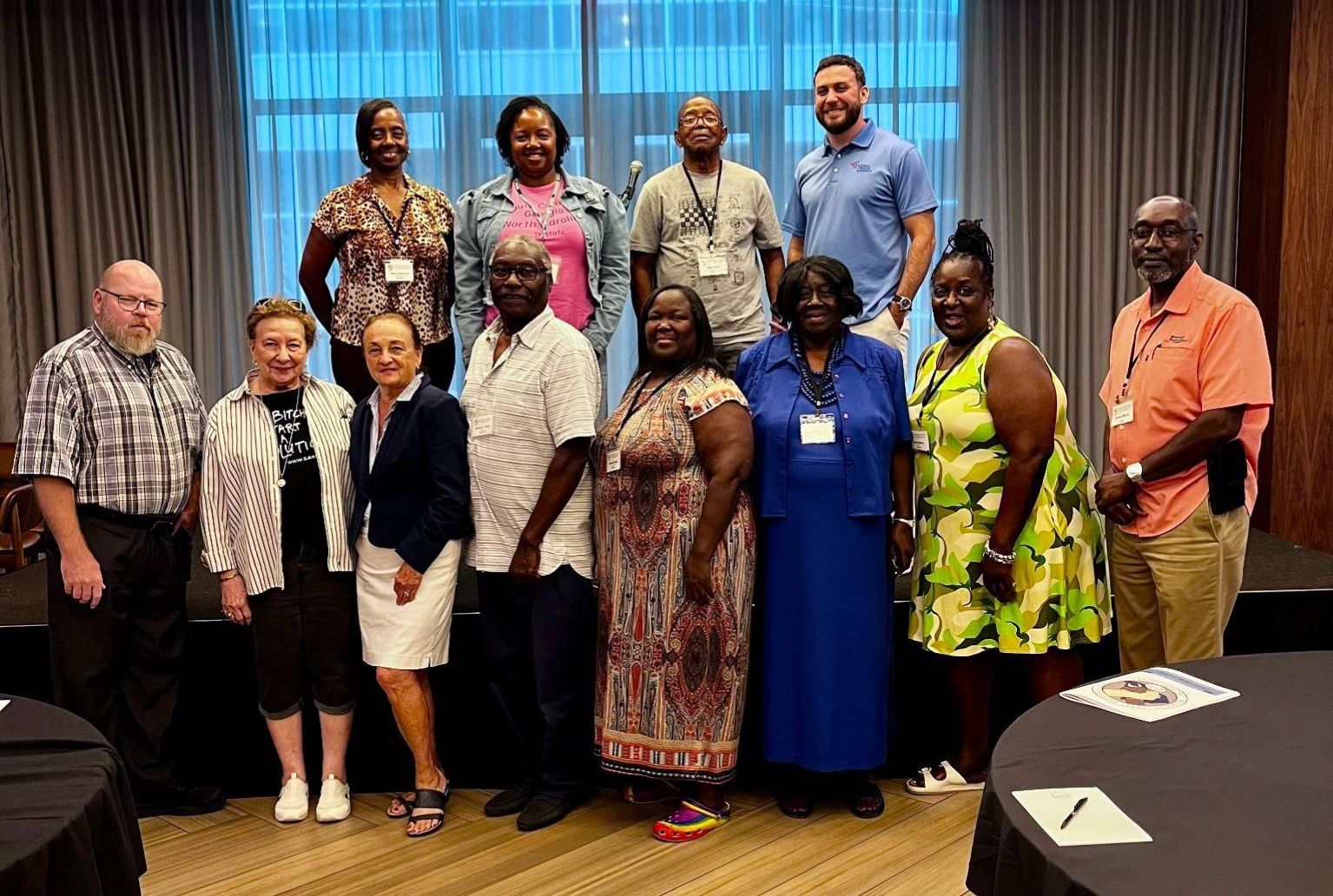|
|
As the Older Americans Act Turns 60, Future of Programs Seniors Rely On Are Under Siege |
|
Last week marked the 60th anniversary of the Older Americans Act (OAA). On July 14, 1965, President Lyndon B. Johnson signed it into law. Now, at a time when 10,000 Americans turn 65 each day, the Administration has proposed a budget that significantly slashes programs funded by the Act.
The OAA funds services for seniors such as family caregiver support, transportation assistance, meal delivery, and protections against elder abuse. A major reason for the law’s success is that it gives states flexibility in deciding where and how to use funds, but as a result many Americans aren’t even aware that the program they rely on is funded by the federal government.
OAA programs fund thousands of senior centers, Meals on Wheels, transportation to medical appointments, as well as the Medicare State Health Insurance Programs (SHIPs), Aging and Disability Resource Centers (ADRCs), the National Center on Elder Abuse (NCEA), and the National Caregiver Family Support Program (NFCSP).
Workers who administer OAA programs were already reeling from layoffs at the Department of Health and Human Services (HHS) in April that slashed 40 percent of staff from the Administration for Community Living (ACL), which coordinates federal aging and disability policy. The Administration’s FY2026 budget will further compound their struggle to provide services by cutting $5 million from elder rights programs and completely eliminating funding for health promotion, disease prevention, and Aging and Disability Resource Centers.
“The Older Americans Act has served seniors well for sixty years,” said Robert Roach, Jr., President of the Alliance. “Lawmakers should be working to safeguard these programs with more funding instead of trying to cut them. As we fight to protect Social Security, we are also ready to mobilize our members to fight back against this proposal and defend the OAA.” |
|
Study Debunks Pharmaceutical Industry’s Claims That Medicare Drug Price Negotiation Would Harm R&D |
|
A new study by Bentley University debunks the pharmaceutical industry’s claims that the Medicare drug price negotiation law would harm innovation and research. Drug research and development (R&D) spending actually increased after it passed despite these assertions, according to the analysis.
The study evaluated spending at 134 corporations and found that R&D spending surged from $211 billion to more than $247 billion after the law passed in 2022, surpassing record levels.
Pharmaceutical lobbyists have used similar rhetoric when defending their monopoly pricing power, most recently when working to pass the so-called ORPHAN Cures Act, which exempts more drugs from Medicare price negotiation and gives drugmakers a massive $5 billion windfall.
“This research confirms that pharmaceutical corporations exaggerated the potential negative impacts of the Inflation Reduction Act so they could continue to exploit patients and maintain the industry’s drug pricing monopoly,” said Richard Fiesta, Executive Director of the Alliance. “Since R&D is clearly thriving at these companies, we must make sure they negotiate in good faith, protect Medicare drug price negotiation, and work to expand the number of eligible prescription drugs.” |
|
Social Security Administration Struggles to Provide Customer Service Amid Fallout from DOGE Cuts |
|
Months after Elon Musk’s Department of Government Efficiency (DOGE) fired thousands of experienced, hardworking Social Security Administration (SSA) workers, the agency is having trouble keeping up with calls to its 1-800 number, according to a report from the Washington Post. SSA pulled about 1,000 field office employees to answer the phones instead of working on claims.
“Social Security Commissioner Frank Bisignano seems to think he can make it look like customer service numbers are improving by shifting workers who process claims to answering the phone. But that’s only going to make the length of time to process a claim take longer,” said Joseph Peters, Jr., Secretary-Treasurer of the Alliance. “Congress clearly needs to pass legislation to force this Administration to keep these offices open and functioning.”
Fortunately, Rep. John Larson (CT) has introduced a bill (H.R. 1876) that will keep field offices open to ensure that beneficiaries can still get in-person help if they need to.
Action Needed: Please send a message to your representative demanding that they support the Keeping Our Field Offices Open Act (H.R. 1876). |
|
South Carolina Alliance Hosts Its Biennial Convention |
|
The South Carolina Alliance hosted its biennial convention on Tuesday and Wednesday of this week, in conjunction with the South Carolina AFL-CIO Convention. AFL-CIO Secretary-Treasurer Fred Redmond and Alliance Field Manager Tommy McLaughlin spoke during the convention. McLaughlin outlined the devastating impacts that the Department of Government Efficiency’s (DOGE) cuts have had on Social Security, and ways that the Alliance and older South Carolinians can fight back to protect earned benefits. |
|
|
|
Left: Field Manager Tommy McLaughlin speaks at the SC Alliance convention; Right: SC Alliance members at the convention |
|
KFF Health News: How To Find the Right Medical Rehab Services By Jordan Rau |
|
Rehabilitation therapy can be a godsend after hospitalization for a stroke, a fall, an accident, a joint replacement, a severe burn, or a spinal cord injury, among other conditions. Physical, occupational, and speech therapy are offered in a variety of settings, including at hospitals, nursing homes, clinics, and at home. It’s crucial to identify a high-quality, safe option with professionals experienced in treating your condition.
|
|
Thanks for reading. Every day, we're fighting to lower prescription drug prices and protect retirees' earned benefits and health care. But we can't do it without your help. Please support our work by donating below. |
|
|
|
|
Alliance for Retired Americans | 815 16th Street, NW | Washington, DC 20006 | www.retiredamericans.org



